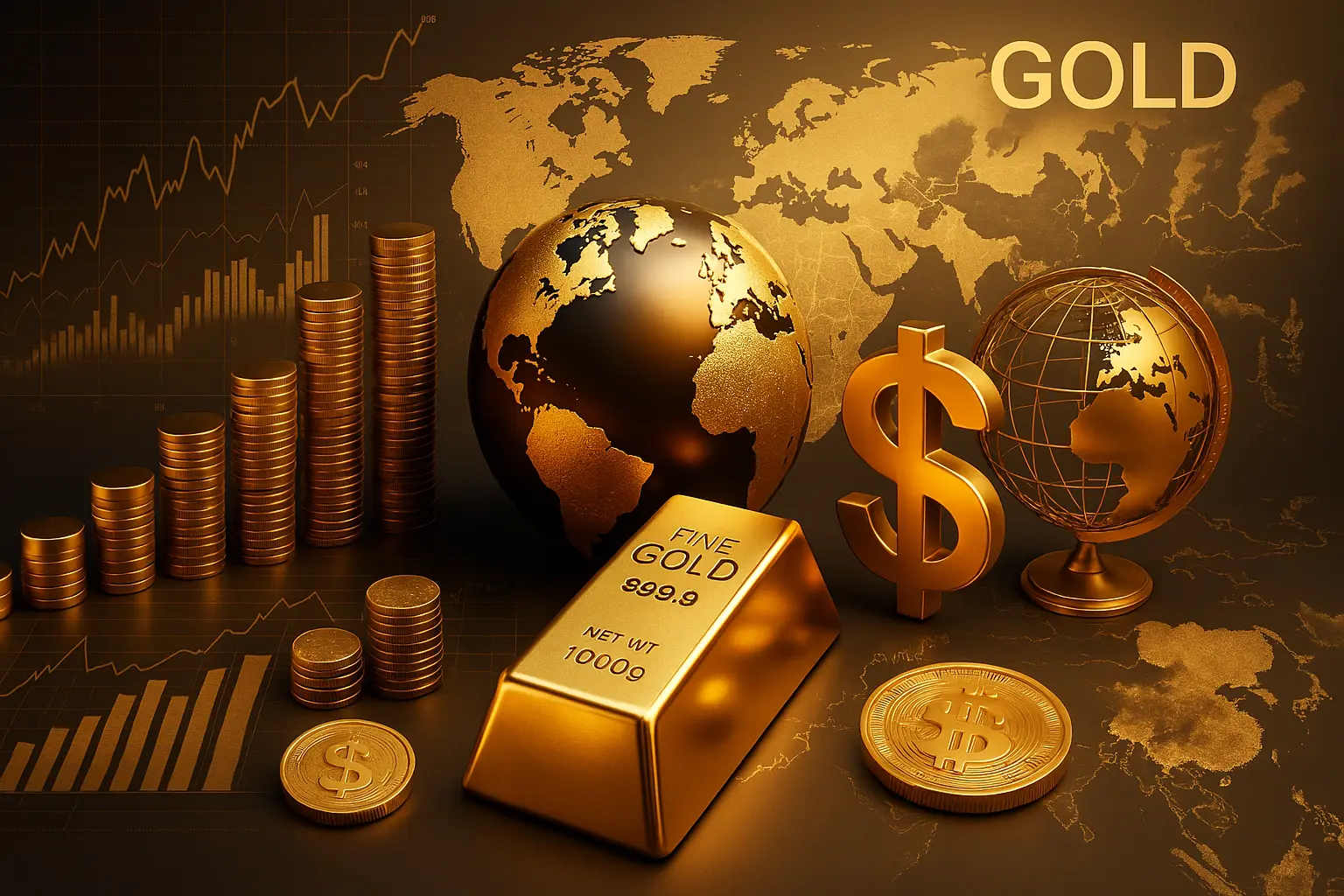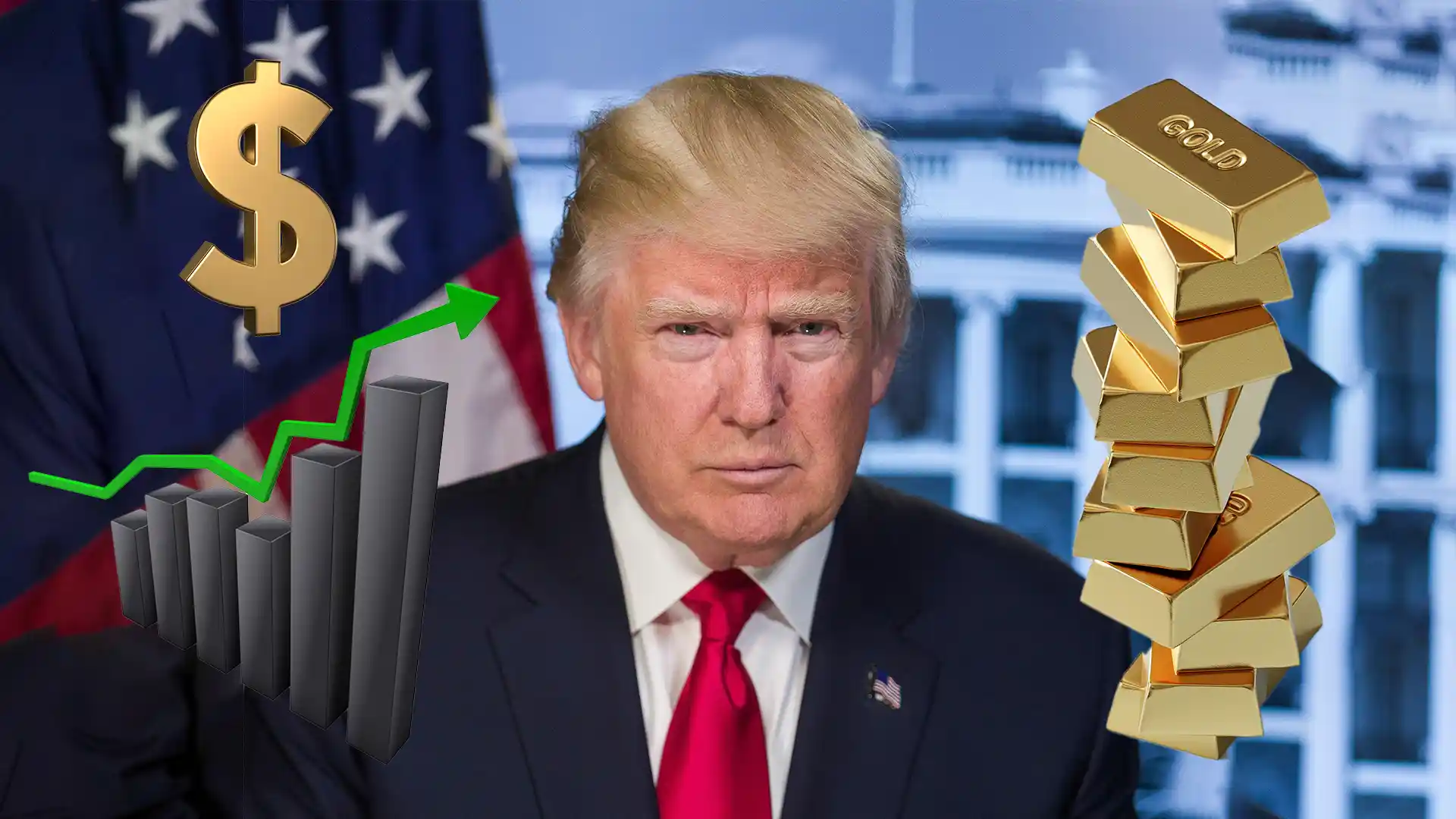Table of contents
Gold Price News: Upward movement reaches USD 2,717 per troy ounce
Dr. Mathias Kunze
Senior Consultant in Commercial and Tax Law
6 min.
Published on: 11.12.2024 | 22:37 UTC

Today's gold price and important market developments from 11.12.2024 in the live ticker
Source: ChatGPT (OpenAI)
Gold price breaks through sideways trend and continues dynamic rise
The price of gold rose to USD 2,717 per troy ounce today, continuing its upward trend. This development is being driven by a combination of geopolitical tensions and macroeconomic factors. In particular, the ongoing uncertainties in the Middle East and the ongoing conflict in Ukraine are increasing the appeal of gold as a safe haven investment.
At the same time, macroeconomic developments such as the recent strength of the US dollar and ongoing central bank purchases are having a stabilizing effect on the market. The current upward trend has the potential to reach new highs if global tensions intensify further.
Russia announces retaliation after attack on military airport
According to the Russian Ministry of Defense, the Taganrog military airport was attacked by Ukraine with western ATACMS missiles. Several soldiers are said to have been injured, while the damage is described as minor. However, Russia has announced retaliation and is hinting that the response will be comprehensive.
This attack marks a new level of escalation in the Ukraine war, as the use of Western long-range missiles directly challenges Russia. Three weeks ago, Russia responded to a similar incident by deploying its new medium-range ballistic missile. Analysts see the current developments as an escalation of the conflict, which could have both military and diplomatic consequences.
Macron seeks European unity to support Ukraine
French President Emmanuel Macron is meeting Polish Prime Minister Donald Tusk in Warsaw today to strengthen European support for Ukraine. The talks are taking place against the backdrop of the change of power in the USA, which brings with it new uncertainties regarding transatlantic cooperation.
Macron had already discussed the future of the country attacked by Russia with both US President-elect Donald Trump and Ukrainian President Volodymyr Zelenskyi in Paris at the weekend. Macron emphasized that Europe must take a leading role in supporting Ukraine, which is particularly evident in view of the geopolitical challenges posed by the war and the humanitarian consequences.
The talks in Warsaw are intended to strengthen cooperation between France and Poland and advance a joint plan for military, economic and humanitarian support for Ukraine. At the same time, the aim is to secure Europe's strategic autonomy in defense policy.
German-Ukrainian armaments cooperation to be further expanded
At the German-Ukrainian Economic Forum in Berlin, Ukrainian Prime Minister Denys Shmyhal emphasized the importance of intensified cooperation in the armaments sector. Ukraine is working together with German companies on projects for the maintenance and repair of armaments technology and the production of modern infantry fighting vehicles and air defense systems.
Schmyhal emphasized that Germany and Ukraine already have some of the largest joint companies in the armaments sector. This cooperation is a decisive factor in strengthening Ukraine's defense capabilities in the ongoing conflict with Russia. The partnership also contributes to making Ukraine's military infrastructure more resilient and sustainable.
The projects in Germany and Ukraine not only support the military power of the country under attack, but also strengthen technological cooperation between the two countries. Observers see this as an important signal for strategic cooperation within Europe.
EU tightens sanctions against Russia's “shadow fleet”
The EU member states have agreed on a new package of sanctions targeting the so-called Russian “shadow fleet”. This fleet transports oil and oil products by circumventing Western trade restrictions. In future, more than 50 ships will no longer be allowed to enter EU ports and will be excluded from European services such as insurance.
In addition, the 15th sanctions package includes new trade restrictions against more than 30 players who, according to the European Union, have various links to the Russian defense and security sector or actively support it. The aim is to further weaken Russia's economic and military capabilities and make it more difficult to finance the war in Ukraine.
With the new measures, the EU is sending a strong signal to maintain the existing pressure on Moscow. The sanctions are also intended to affect countries that indirectly help Russia to circumvent existing trade restrictions and mark a further intensification of the European strategy against Russian aggression.
Kremlin organized Assad's escape from Syria
New reports suggest that the Kremlin was actively involved in the escape of ousted Syrian ruler Bashar al-Assad. According to the news medium “Bloomberg”, Russian secret service agents coordinated Assad's evacuation in order to avoid a bloodbath in Damascus. Assad and his family were flown out via the Russian airbase in Syria, with the plane's transponder disabled to prevent tracking.
According to experts, the decision to make Assad surrender was a damage limitation measure. The Kremlin wanted to prevent Assad from dying like other toppled dictators such as Saddam Hussein or Muammar al-Gaddafi. The Russian government had realized that a military victory against the rebel forces in Damascus was no longer possible.
By evacuating Assad, Russia is showing that it wants to secure its strategic interests in Syria even after the regime change. The decision to force its long-standing ally to withdraw is seen as a calculated move to prevent an escalation and uncontrolled takeover by rival groups.
Repairs at Damascus airport are progressing
Following the looting and vandalism that took place at Damascus International Airport in the wake of the fall of the Assad regime, extensive repair work is currently underway. According to informed sources, the first flights could be handled again as early as Sunday.
During the chaotic days following the rebel takeover, doors, windows, cables and furniture were stolen from the airport. The damage and missing equipment are making it difficult to resume operations. Nevertheless, the Syrian Ministry of Transport is working to restore the airport's most important functions in order to stabilize the country's infrastructure in a phase of political upheaval.
The reopening of the airport would send a strong signal that Syria is beginning to rebuild and symbolize a return to some normality. Damascus International Airport has been an important hub for the region for decades and could play a central role in the country's trade and tourism in the future.
Aleppo shows first signs of recovery
Amid the destruction caused by years of fighting and earthquakes, Aleppo is showing the first signs of recovery and hope. The streets of the city are bustling, vendors sell corn and sweets and young people carry Syrian flags on their shoulders. Aleppo Castle, recently used by rebel leader Mohammad al-Julani as a symbol of his victory, is attracting visitors from surrounding regions.
Despite these positive developments, the situation in Aleppo remains challenging. Many buildings have been destroyed and the city is still dependent on generators, as the power supply is not guaranteed across the board. The population faces everyday difficulties, but the lively streets and the return of some commercial life give hope for a better future.
The city that was once the economic heart of Syria could now become a symbol of the country's reconstruction. However, the road back to normality is long and Aleppo remains a city that bears both its scars and its unbroken will for renewal.
Baath Party ceases its work after 60 years
The fall of the Assad regime also marks the end of the era of the Baath Party, which had been in power in Syria since the 1960s. The party leadership has announced that all activities of the organization will be discontinued until further notice. This means that the Assad family is finally losing its political power base.
The Ba'ath Party, which once sought to unite the Arab world, was instrumental in bringing Hafiz al-Assad - the father of Bashar al-Assad - to power. Over the past decades, the party developed into a tool of authoritarian rule in Syria and increasingly lost importance, which was particularly evident after the fall of Saddam Hussein in Iraq in 2003.
The decision to end the party's work marks the symbolic end of a political chapter that has shaped Syria for more than half a century. Observers also see this as a possible new start for the country, which now looks to an uncertain but potentially reform-oriented future without the ideological control of the Baath Party.
Israel's military operations in Syria continue
Israel's army is continuing its operations in southern Syria. The military reports the seizure of several Syrian tanks that are no longer in use. The aim is to ensure the security of Israel's border regions and prevent potential threats.
The military operations are focused on the buffer zone on the border. Here, a brigade secures important defense points and takes action against potential threats along the border. Israel emphasizes that these measures are necessary to protect the civilian population in the north of the country.
Israel's operations in Syria are viewed differently internationally. While some countries see the action as a defensive measure, others accuse Israel of violating international law. Nevertheless, Israel is sticking to its strategy in order to neutralize potential risks to its own security at an early stage.
EU ministers discuss Syria and migration
The interior ministers of the 27 EU member states are meeting today to discuss the current situation in Syria and its impact on migration. The meeting will focus on the latest developments following the fall of the Assad regime. The aim is to develop joint strategies for dealing with the consequences of the change of power and the associated refugee situation.
A central topic will be the implementation of the EU asylum reform. Various member states have recently adapted or halted their asylum procedures for Syrians. This also raises the question of whether returns to Syria could be possible again in the future. However, countries such as Germany are urging caution and are calling for stability in Syria to be awaited before return programs are initiated.
The results of the consultations could have far-reaching consequences for European migration policy. At the same time, they send a signal that the EU continues to take its responsibility for dealing with the consequences of the Syrian civil war seriously.
Scholz initiates new elections in Germany
Federal Chancellor Olaf Scholz has officially initiated the steps to call new elections on February 23, 2025. Today he submitted a request to the President of the Bundestag to call a vote of confidence next Monday. This is a formal step towards dissolving parliament and clearing the way for new elections.
With the end of the coalition government, it is clear that Scholz no longer has a majority in the Bundestag without the support of the FDP. It is therefore highly likely that he will lose the vote of confidence. Scholz will then propose to the Federal President that parliament be dissolved, after which new elections will have to be held within 60 days.
The decision to call new elections marks a significant turning point in German politics. It gives the parties the opportunity to form new majorities and possibly create a stable governing coalition for the coming years.
Technical analysis: Gold price continues to move upwards
The price of gold reached USD 2,717 per troy ounce today, showing a clear upward trend that can be attributed to the growing uncertainty caused by geopolitical tensions. After a long period of sideways movement, the market has now passed the USD 2,700 mark, which could be seen as a signal of further potential.
From a technical perspective, the momentum remains positive. The Relative Strength Index (RSI) is above the 60 mark, which indicates solid upward momentum. The Moving Average Convergence Divergence (MACD) shows a buy signal as the signal line crosses upwards. These technical indicators suggest that there is further potential for price gains in the short term.
The next resistance level is USD 2,730, while a return below support at USD 2,700 could interrupt the current uptrend. However, the market remains dependent on external factors such as geopolitical events and the strength of the US dollar. Investors should therefore remain vigilant, as abrupt news can lead to volatility at any time.
Market outlook: Uncertainty likely to drive gold prices higher
With a gold price of USD 2,717 per troy ounce, the upward trend on the market is likely to continue. Geopolitical tensions - particularly those caused by the war in Ukraine, developments in Syria and growing international conflicts - are ensuring that demand for the precious metal as a safe investment remains high. At the same time, macroeconomic factors such as the strength of the US dollar remain a dampening influence.
In the short term, the escalation in the Middle East and the new EU sanctions against Russia could drive the price of gold up further. The growing uncertainties in German and European politics could also play a role. Analysts expect the price to test the USD 2,730 mark, provided there are no conflicting macroeconomic signals.
In the long term, the market remains sensitive to external influences. Both the further development of central bank policy and the decisions of major investors in Asia could have a decisive influence on the dynamics of the gold price. The next few days therefore promise to be exciting, while investors will keep a close eye on reactions to new geopolitical and economic stimuli.
Dr. Mathias Kunze
Senior Consultant in Commercial and Tax Law
Blog

All-time high: Gold price breaks through USD 3,000 for the first time

Gold in industry: A detailed analysis of its interactions with halogens and in cyanide solutions







